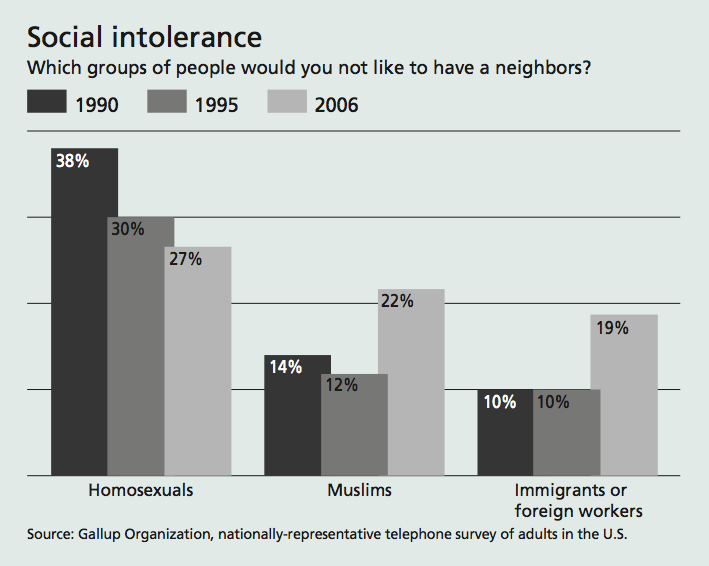Nationalist white supremacy organizations, and their gentler counterparts in the U.S., sometimes argue that non-white women are having more children than white women. The result is a shift in the national demographic (that they don’t like).
This month the Pew Research Center released a report on the changing demographics of American motherhood (discovered thanks to a tip by Michael Kimmel). Under “Mother’s Race,” we see that there has been a 12 percentage point decrease in the share of births to white women between 1990 and 2008. In contrast, births to Asian and, especially, Hispanic women have increased (a combined 13 percentage points):
The share of births to native versus foreign born women has also shifted, with a quarter of births now to women who have immigrated to the U.S.:
They summarize:
White women made up 53% of mothers of newborns in 2008, down from 65% in 1990. The share of births to Hispanic women has grown dramatically, to one-in-four.
So, whether you agree with the national white supremacists’ evaluation of the data or not (I assume you do not), they’re right about the data.
UPDATE: Sabrina, in the comments, rightly points out that my comments assume that the father’s race matches the mother’s.
Lisa Wade, PhD is an Associate Professor at Tulane University. She is the author of American Hookup, a book about college sexual culture; a textbook about gender; and a forthcoming introductory text: Terrible Magnificent Sociology. You can follow her on Twitter and Instagram.










